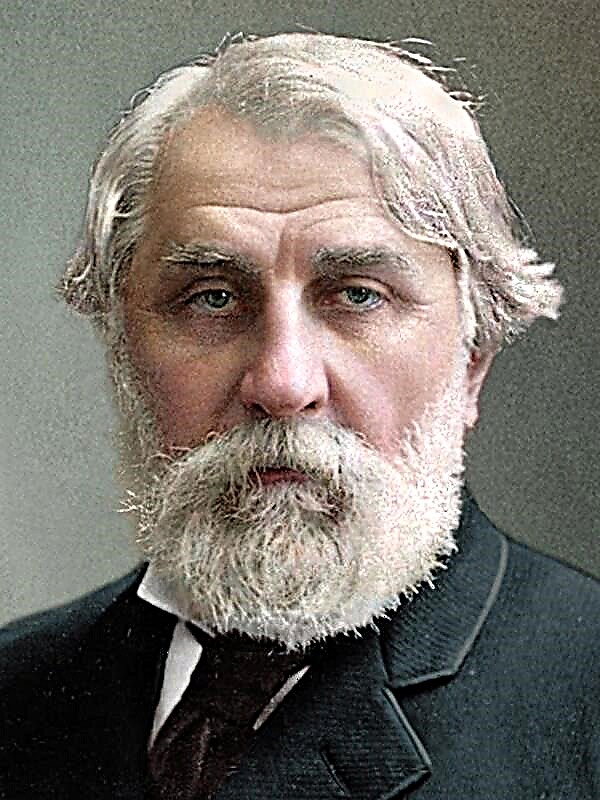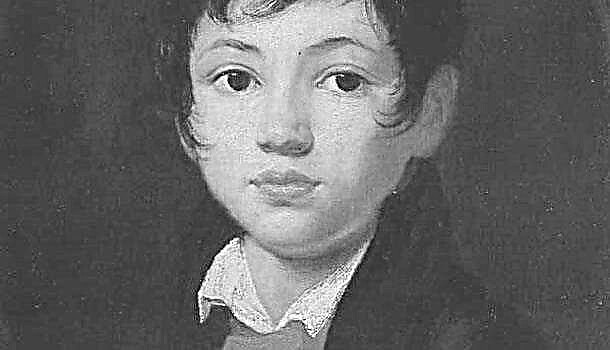Under the city elms
Abbot Lanteny, rector of a seminary in the city of ***, wrote a letter to Monsignor Cardinal Archbishop, in which he bitterly complained about Abbot Gitrel, a teacher of spiritual eloquence. Through the aforementioned Gitrel, dishonoring the good name of the clergyman, Mrs. Worms-Clavlen, the prefect's wife, acquired the vestments that had been stored in the sacristy of the Luzan church for three hundred years and put upholstery on the furniture, which shows that the eloquence teacher is not distinguished by either strict morality or perseverance beliefs. Meanwhile, Abbot Lanteni became aware that this unworthy shepherd was going to lay claim to the episcopal dignity and the empty Turkuene pulpit at that moment. Needless to say, the rector of the seminary - an ascetic, ascetic, theologian and the best preacher of the diocese - himself would not refuse to take on his shoulders the burden of heavy episcopal duties. Moreover, it is difficult to find a more worthy candidate, for if the abbot Lanten is capable of doing harm to his neighbor, then only in multiplying the glory of the Lord.
Abbot Gitrel did indeed constantly see the prefect Worms-Clavlen and his wife, whose main sin was that they were Jews and Masons. Friendly relations with a representative of the clergy flattered a Jewish official. The Abbot, with all his humility, was on his mind and knew the value of his reverence. She was not so great - an episcopal dignity.
There was a party in the city that openly called Abbot Lanteny a shepherd worthy to occupy an empty Turkuen pulpit. Since the city *** had the honor of giving Turkuen a bishop, the faithful agreed to part with the rector for the benefit of the diocese and the Christian homeland. The problem was only the stubborn General Cartier de Chalmo, who did not want to write to the Minister of Cults, with whom he was on good terms, and put in a word for the applicant. The general agreed that Abbot Lantaigne was an excellent shepherd and, if he were a military man, a fine soldier would come out of him, but the old soldier never asked the government for anything and now he was not going to ask. So the poor abbot, who, like all fanatics, was deprived of the ability to live, had no choice but to indulge in pious thoughts and pour bile and vinegar in conversations with Mr. Bergeret, a teacher of the Faculty of Philology. They understood each other perfectly, for although Mr. Bergeret did not believe in God, he was a smart and frustrated person. Having deceived himself in his ambitious hopes, having tied the knot with a real vixen, having failed to become pleasant for his fellow citizens, he found pleasure in a little effort to become unpleasant for them.
Abbot Gitrel, an obedient and respectful child of His Holiness Pope, did not waste time and gently informed the prefect of Worms-Claudlin that his rival Abbot Lanten was disrespectful not only to his spiritual authorities, but even to the prefect himself, whom he could not to forgive neither affiliation with the Freemasons, nor of Jewish origin. Of course, he repented of his deed, which, however, did not stop him from pondering the following wise moves and promising to himself that, as soon as he gained the title of prince of the church, he would become irreconcilable with secular power, freemasons, principles of free-thinking, republic and revolution. —The struggle around the Turkuen department was serious. Eighteen applicants sought episcopal vestments; the president and the papal nuncio had their own candidates; the bishop of the city *** had their own. Abbot Lanteny managed to secure the support of General Cartier de Chalmo, who is highly respected in Paris. So Abbot Gitrel, behind whose back is only a Jewish prefect, lagged behind in this race.
Willow mannequin
Mr. Bergeret was not happy. He had no honorary titles and was unpopular in the city. Of course, as a true scientist, our philologist despised the honors, but still felt that it was much more beautiful to despise them when you have them. Mr. Bergeret dreamed of living in Paris, meeting the metropolitan scholarly elite, arguing with her, publishing in the same magazines and surpassing everyone, for he recognized that he was smart. But he was unrecognized, poor, his wife was poisoning his life, believing that her husband was a brain and a jerk, whose presence nearby she was forced to endure. Bergeret was engaged in "Aeneid", but he was never in Italy, he devoted his life to philology, but did not have money for books, and his cabinet, already small and uncomfortable, shared with his willow mannequin, on which she tried on her own work skirts.
Depressed by the ugliness of his life, Mr. Bergeret indulged in sweet dreams of a villa on the shores of a blue lake, a white terrace, where you could immerse yourself in a serene conversation with selected colleagues and students, among myrtle, flowing divine aroma. But on the first day of the new year, fate dealt a modest blow to the humble Latinist. Returning home, he found a wife with his beloved student, Mr. Ru. The ambiguity of their posture meant that Mr. Bergeret had grown horns. At the first moment, the newly made cuckold felt that he was ready to kill the wicked adulterers at the crime scene. But religious and moral considerations supplanted instinctive bloodthirstiness, and disgust with a powerful wave flooded the flames of his anger. Mr. Bergeret silently left the room. From that moment, Ms. Bergeret was plunged into the infernal abyss that opened under the roof of her house. A cheated husband does not herds kill an unfaithful spouse. He just shut up. He deprived Ms. Bergeret of the pleasure of seeing her missus raging, demanding an explanation, emanating with bile ... After, in a deathly silence, the Latinist’s iron bed was placed in the study, Ms. Bergeret realized that her life of the sovereign mistress of the house had ended, for the husband excluded the fallen spouse from his outer and inner world. Just abolished. A little evidence of the coup d'etat was the new maid, who brought Mr. Bergeret into the house: a village cowgirl who knew how to cook only stew with lard, understood only ordinary people, drank vodka and even alcohol. A new maid entered the house like death. The unfortunate Mrs. Bergeret could not stand the silence and loneliness. The apartment seemed to her a crypt, and she fled from it to the salons of city gossips, where she sighed heavily and complained about her tyrant husband. In the end, local society was firmly convinced that Ms. Bergeret was a poor thing, and her husband was a despot and a libertine who kept his family starving for the sake of satisfying his dubious whims. But at home she was waiting for deathly silence, a cold bed and an idiot maid ...
And Ms. Bergeret could not stand it: she bowed her proud head to the representative of the glorious Pouilly family and went to put up with her husband. But Mr. Bergeret was silent. Then, driven to despair, Ms. Bergeret announced that she was taking the youngest daughter with her and was leaving home. Upon hearing these words, Mr. Bergeret realized that with his wise calculation and perseverance he had achieved the desired freedom. He did not answer, only tilted his head in agreement.
Amethyst ring
Ms. Bergeret, as she said, did so; she left the family hearth. And she would have left a good memory in herself if she had not compromised herself with a rash act on the eve of her departure. Arriving on a farewell visit to Ms. Lacarelle, she found herself in the living room alone with the landlord, who enjoyed the fame of a merry fighter, warrior, and inveterate kisser in the city. To maintain a good reputation, he kissed all the women, girls and girls he met, but he did it innocently, for he was a moral man. That is how Mr. Lacarelle kissed Mrs. Reger, who took the kiss for a declaration of love and passionately answered him. It was at that moment that Ms. Lacarelle entered the drawing room.
Mr. Bergeret did not know sadness, for he was finally free. He was absorbed in building a new apartment to his liking. The terrifying cowgirl servant was reckoned, and the virtuous Ms. Bornish took her place. It was she who brought to the Latinist's house a creature that became his best friend. One morning, Ms. Bornish laid a puppy of indeterminate breed at the feet of the owner. While Mr. Bergeret climbed into a chair to get a book from the top shelf of the bookcase, the doggie settled comfortably in the chair. Mr. Bergeret fell from his chair, and the dog, despising the peace and comfort of his chair, rushed to save him from terrible danger and lick his nose in comfort. So the Latinist gained a loyal friend. To crown it all, Mr. Bergeret received the coveted place of an ordinary professor. The joy was overshadowed only by the screams of the crowd under his windows, which, knowing that the professor of Roman law sympathizes with the Jew, convicted by a military tribunal, demanded the blood of a venerable Latinist. But soon he was delivered from provincial ignorance and fanaticism, for he received a course not somewhere, but at the Sorbonne.
While the events described above developed in the Bergeret family, Abbot Guitrel did not lose time. He took a lively part in the fate of the chapel of the Belfish Mother of God, which, according to the abbot, was miraculous, and earned the respect and favor of the Duke and Duchess de Bresse. Thus, the seminary teacher became necessary to Ernst Bonmon, son of Baroness de Bonmon, who wholeheartedly sought to be accepted in the house of de Bres, but his Jewish origin prevented this. The persistent young man made a deal with the cunning abbot: the bishopric in exchange for the de Breset family.
So the clever abbot Guitrel became Monsignor Guitrel, bishop of Turkuen. But the most striking thing is that he kept his word to himself at the very beginning of the struggle for episcopal vestments, and blessed the authorities of the congregation of his diocese, who refused to pay the exorbitant taxes imposed on them by the government, to resist.
Mr. Bergeret in Paris
Mr. Bergeret settled in Paris with his sister Zoe and daughter Polina. He received a chair at the Sorbonne, his article in defense of Dreyfus was published in Figaro, and among the honest people of his quarter, he earned the glory of a man who broke away from his brotherhood and did not follow the defenders of the saber and sprinkler. Mr. Bergeret hated counterfeiters, which, he thought, was permissible for a philologist. For this innocent weakness, the right-wing newspaper immediately declared him a German Jew and an enemy of the fatherland. Mr. Bergeret philosophically reacted to this insult, for he knew that these miserable people had no future. With all his being, this humble and honest man longed for change. He dreamed of a new society in which everyone would receive the full price for his work. But, as a true sage, Mr. Bergeret understood that he would not be able to see the kingdom of the future, because all the changes in the social system, as well as in the structure of nature, are slow and almost imperceptible. Therefore, a person must work to create the future in the same way that carpet workers work on trellises - without looking. And his only instrument is a word and thought, unarmed and naked.












